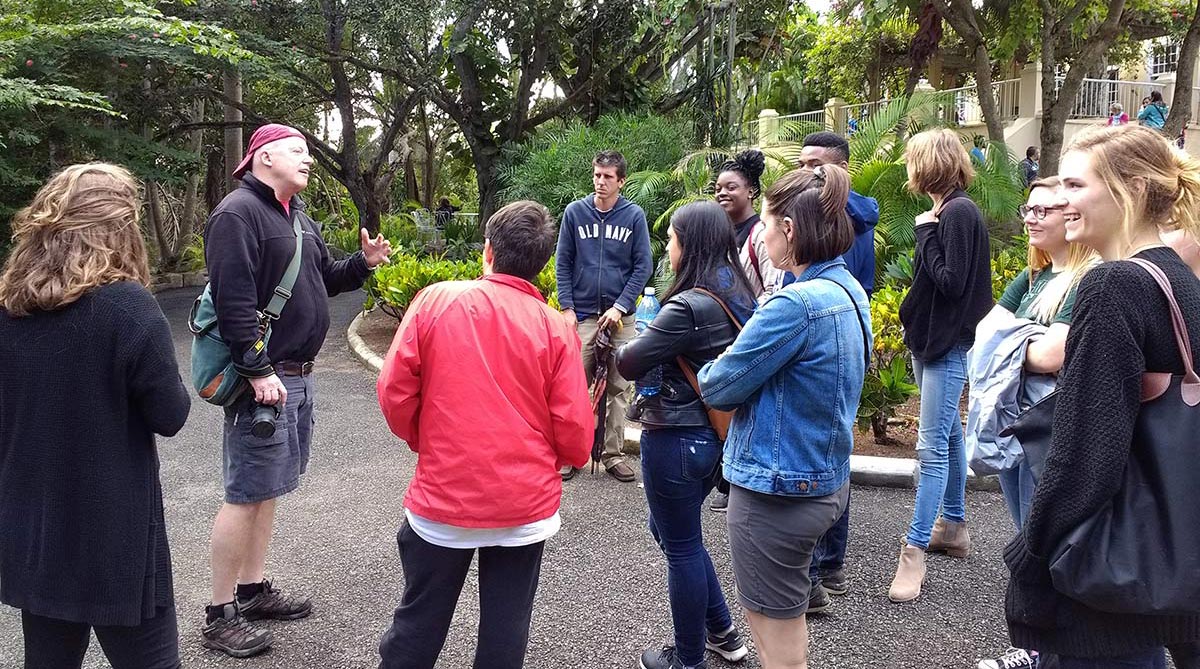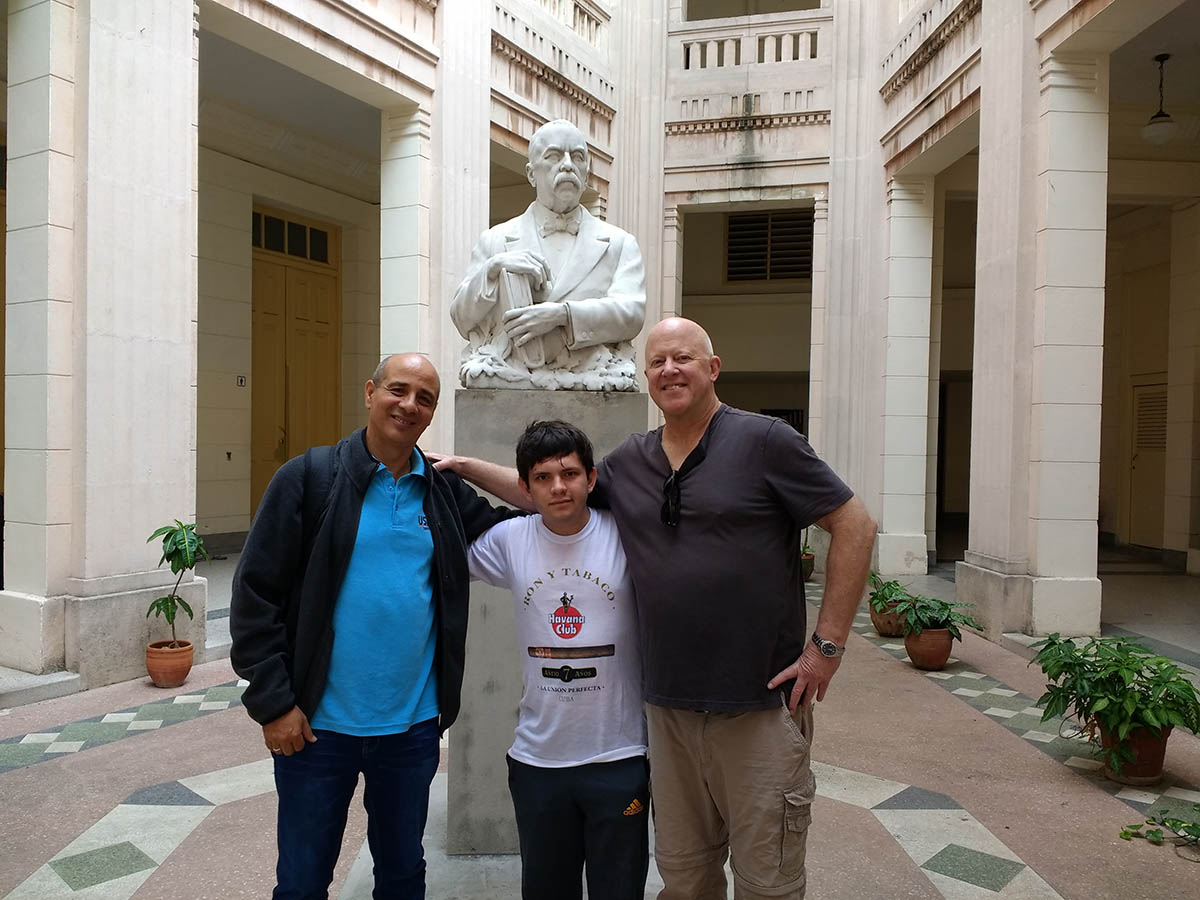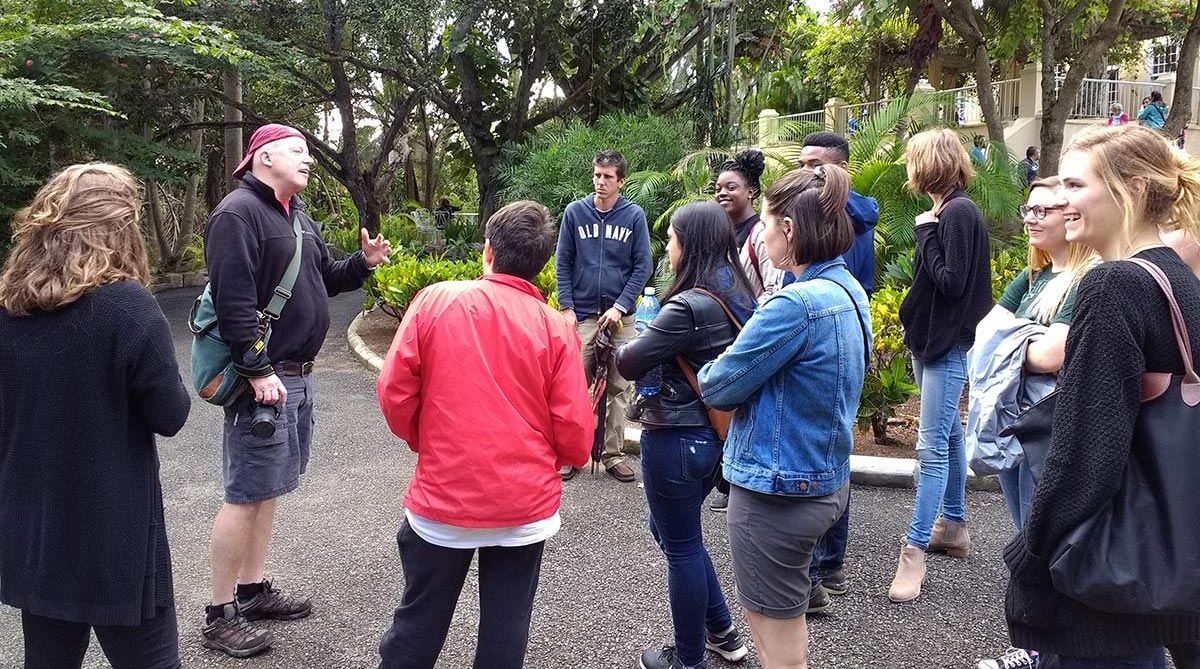Dale Graden Teaches Hemingway in Havana
CLASS History professor Dale Graden literally went the extra miles to teach Ernest Hemingway’s Cuban literature
When not teaching history in the College of Letters, Arts and Social Sciences, Dale Graden can often be found traveling around the world and teaching history at its source.
In early 2018, Graden’s passion for history and culture took him to Havana, Cuba, where he taught a course on Ernest Hemingway and his experiences in the country.
“There really is no substitute for reading an author’s work in the same places that they lived and being able to have the same experiences,” said Graden, who also has taught courses in Spain and Venezuela on civil war, revolution and its aftermath.
His class in Cuba focused on three of Hemingway’s Cuban-inspired works: “To Have and Have Not,” “The Old Man and the Sea,” and “Islands in the Stream.”
Graden’s visit gave him a unique opportunity to experience history and see its ripples.
“Hemingway lived in Cuba in the time leading up to Castro’s revolution, and he was able to experience firsthand the shifting politics and ideals with an outsider’s perspective,” Graden said. “Through his literature, we were able to study what that time period looked like through the lens of some historically important literature. There is no history without literature, and there is no literature without history.”
The course was made up of Graden and a student from California State University at Chico, who spent three weeks in Havana in January 2018. Although the United States has had an embargo in place against Cuban imports since 1962, tensions were eased in 2011 with students and religious missionaries gaining the opportunity to visit.
In addition to studying the novels, the class visited many points of interest, like Hemingway’s residence at Finca Vigía, which is preserved to recreate exactly what it looked like when he left in 1960. Graden was also able to delve into Hemingway’s complicated web of relationships and connections in Cuba.
“It was an eye-opening experience to compare Hemingway the famed writer with the perceptions of him in Cuba,” he said.

The Cuban Experience

The trip to Cuba was made possible through a partnership with the University Studies Abroad Consortium. The program has brought the world to students from more than 800 universities worldwide, and the University of Idaho serves on its board of directors.
“Travel like this is so important because it informs your worldview and makes students a little more cognizant of the world around them,” Graden said. “The embargo didn’t just stop us from trading resources. Outside of international incidents, there really isn’t much media coverage for Cuba, so the only real way to know what culture and development looks like there is to go and actually experience it.”
“There really isn’t much media coverage for Cuba, so the only real way to know what culture and development looks like there is to go and actually experience it.”
Throughout the course, Graden emphasized education through experience. The class made efforts to reach a wide range of locals, from infectiously happy cab drivers to the older generation who had experienced the Cuban Revolution firsthand 60 years ago.
“I was lucky to have a small class, so that we could really develop a connection between each other and with the incredible people of Cuba,” Graden said. “We talked with the locals about everything. We encountered a wide range of opinions on Hemingway, the Americans, and the embargo, and those interpersonal experiences are what I really took away from the trip.”
Beyond the class itself, the biggest benefits came from becoming embedded in a new culture with all its highs and lows.
“Obviously there are areas in Cuba that are impoverished, but it is just as important to see those places as it is the museums and the restaurants and hotels,” he said. “The point of a study abroad is to expand your worldview, and Cuba is an excellently preserved destination for witnessing an entirely different world from our own.”
Article by Jonah Baker ’19, English - Professional Writing, CLASS Marketing and Communications
Published March 2018








